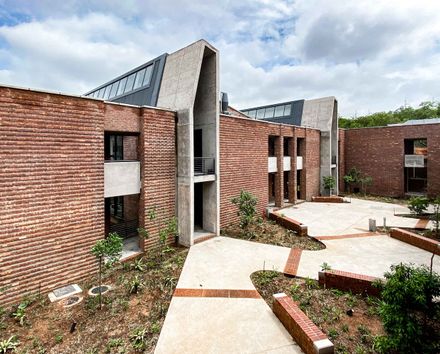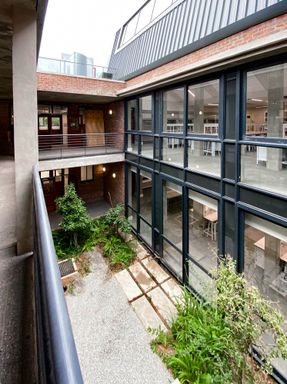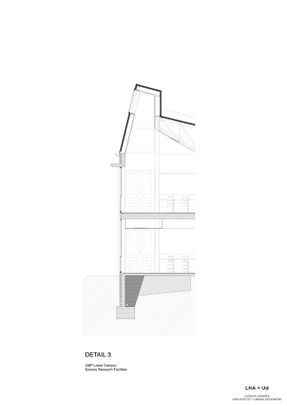Science Research Facilities
Science Research Facilities
Ludwig Hansen Architects + Urban Designers
ARCHITECTS
Ludwig Hansen Architects, Urban Designers
CLIENTS
University Of Mpumalanga
LABORATORY CONSULTANT
Safe-t
LANDSCAPE ARCHITECT
Kwpcreate
FIRE ENGINEER
Aurecon
CONTRACTOR
Trencon
COST CONSULTANT
Sbds Quantity Surveyors
MANUFACTURERS
Graphisoft, Plascon, Polyflor, Federale Stene, Gyproc Saint-gobain, Kirk Marketing, Kliptite, Sika South Africa, Union Tiles
PROJECT MANAGER
University Of Mpumalanga & Gladafrica Project Management
WET SERVICES ENGINEER
Delca Systems
STRUCTURAL ENGINEER
Skcm Engineers
CIVIL ENGINEER
Delta Built Environment Consultants
ARCHITECT IN CHARGE
Ludwig Hansen Architects, Urban Designers
ELECTRICAL ENGINEER
Plp Consulting Engineers
LABORATORY CONSULTANT
Safe-t
MECHANICAL ENGINEER
Aurecon
ICT CONSULTANT
Implementing It
AV CONSULTANT
Digital Fabric
AREA
8548 M²
YEAR
2019
LOCATION
South Africa
CATEGORY
Research Center, University
Text description provided by architect.
Situated on the University of Mpmalanga Lower Campus, the building provides 10 large specialized teaching laboratories, a number of post-graduate and research laboratories, raked and flat teaching venues and staff office spaces.
Mpumalanga is a tropical region in the eastern part of South Africa, iconic for its beautiful undulating lush natural landscape and mountainous terrain, with steep slopes and rocky outcrops providing a challenging environment to build in.
An existing unused parking platform on the university campus was identified as the extent of the site, a welcome constraint that mitigated surface challenges and guided the edges of the building to limit the impact on the natural environment.
The design intent of the Science Research Facilities for the University of Mpumalanga was to challenge the conventional learning practices of science within academic institutions which are mostly highly regulated and inaccessible to the curious eye.
The building program has been spaced over separated buildings, punctuated by courtyards of various sizes that ensure the building is breathable, light and takes advantage of the climate and natural landscape of the Mpumalanga region, furthermore balancing the enclosed laboratories and open space.
The envelope celebrates the program of the various laboratories through generous transparency in the facade whilst still sensitively responding to the climatic and functional requirements of an effective laboratory workspace.
By dispersing the building program across the site, new intermediate zones are created through courtyards, lingering thresholds and exposed service rooms, all connected by open covered walkways that wrap around the main courtyard.
The programmatic arrangement of this building along the circulation spine exposes the entire procedure of the working nature within a laboratory, which in turn visually opens up the scientific discourse to the public realm.
The exterior program takes advantage of the visual connections of the laboratories by providing generous walkways and defined courtyard spaces to encourage people to linger and potentially learn through visual engagement.
The courtyards nestled in between the laboratories have been designed as open terraria that exhibit the thriving micro-ecologies of Mpumalanga.
A strong groundwater source uncovered during the construction phase is guided through the main courtyard through recessed channels on the ground, further reinforcing the powerful presence of the natural context.
The material palette is a selection of honest materials; a warm toned face-brick, off shutter concrete and glazing ensuring the envelope remains in line with the broader campus aesthetic.
Terazzo floors continue the sentiment of honest, hardware materials throughout circulation routes, while the doors and joinery made up of locally sourced hardwood timber lend a warmth to the crisp white laboratory interiors.

































